Infogids IVV/Gevaren: de risico’s op beroepskankers in één oogopslag
De kankers en hun beroepsgerelateerde oorzaken – PDF A4
De kankers en hun beroepsgerelateerde oorzaken – PDF A3
Infogids IVV/Gevaren: de risico’s op beroepskankers in één oogopslag
De kankers en hun beroepsgerelateerde oorzaken – PDF A4
De kankers en hun beroepsgerelateerde oorzaken – PDF A3
ILO’s Guy Ryder – ‘All countries should ratify health and safety conventions’
Speaking in Russia ahead of the World Day for Safety and Health at Work, ILO Director-General, Guy Ryder, said the well-being of workers continues to be a priority for the ILO as the world of work undergoes rapid change.
https://www.ilo.org/global/about-the-ilo/newsroom/news/WCMS_689373/lang–en/index.htm
Guy Ryder, l’OIT: «Tous les pays devraient ratifier les conventions relatives à la sécurité et à la santé au travail»
https://www.ilo.org/global/about-the-ilo/newsroom/news/WCMS_689942/lang–fr/index.htm
“Todos los países deberían ratificar los convenios sobre seguridad y salud”, afirma Guy Ryder, OIT
https://www.ilo.org/global/about-the-ilo/newsroom/news/WCMS_690048/lang–es/index.htm
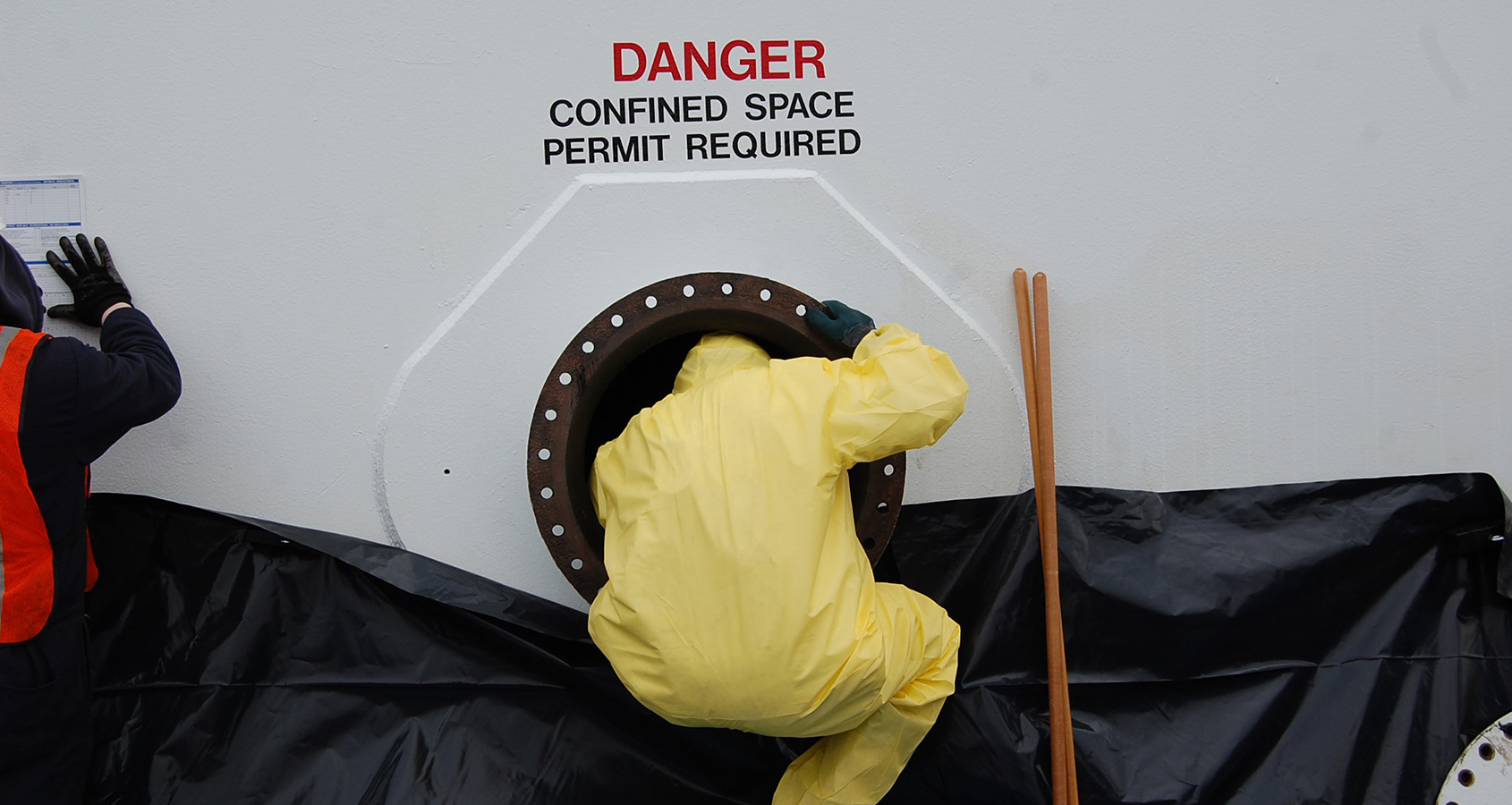
To put the recent deaths in perspective, there have been a total of 145 in the past 20 years, and alarmingly 28 in the past 16 months.
The massive rise in fatalities says everything about the callousness of those running the shipping industry today. Companies that choose to save a dollar rather than train and equip workers to labour safely in confined spaces or invest in an onboard safety culture in which workers are free to take the time they need to vent cargo holds, ensure sufficient good air or question a risk they are facing.
We know that maritime workers are generally aware of the risks associated with entry into confined spaces, but they may not be aware of the details and extent of the varied dangers posed by forest products, coal, iron ore, grains, gases and other cargo.
It is not enough for a worker to rely on opening the hatches for 30 minutes and hoping for the best, or to do the best they can to protect themselves on their own. It is not enough for workers to take all available precautions but sometimes still be caught without sufficient protection by pockets of gases and lack of oxygen. And it is absolutely not enough that workers are left to cope with an inhumane industry by doing what humans have always done for one other: risk their own lives to save their fallen colleagues.
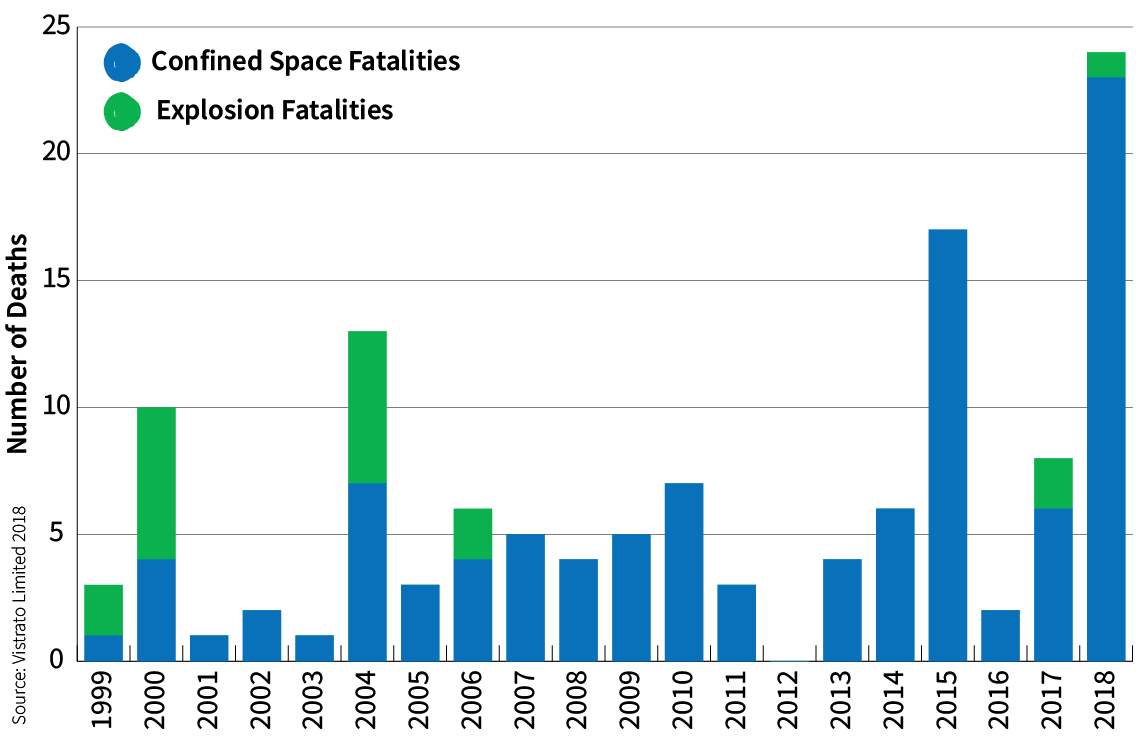
Last November, two dockers died while unloading logs from the hold of a bulker in Montevideo, likely after exposure to an unexpected fumigant they were not told about. A crew member saw them in distress and entered the hold wearing a face mask, determined to rescue them. During his efforts, his mask was reportedly removed, and he passed out, eventually landing in hospital in an induced coma. A third docker required medical help before the tragic incident was over.
Shipowners have a duty of care for their crew and dockers employed to carry out their cargo operations. Education and procedures are not optional. The negligence of shipowners who disregard standard procedures and cost workers their lives must be met with a punishment proportionate to the lives lost.
The International Maritime Solid Bulk (IMSB) Cargoes Code governs the carriage of bulk cargo worldwide. The IMSB code:
• Identifies and groups cargoes based on hazard
• Provides guidelines for safe handling
• Sets procedures for testing
The ITF Dockers’ and ITF Seafarers’ sections will be at the International Maritime Organization (IMO) working with shipowners to ensure that the regulations governing confined space stand up and are strong enough to protect all maritime workers.
The ITF Dockers’ Section deplores operators who routinely force workers to choose between risking their lives or their jobs. We continue the fight against them and demand accountability.
We join our sisters and brothers from Australia and Canada and echo their call for industrial manslaughter laws for employers deliberately undermine safety a risk workers’ lives.
Kill a worker, go to jail!
Our campaign demanding LafargeHolcim respect workers’ rights continues.
It’s time to send management a message on 28 April, International Workers Memorial Day: Health and safety is every worker’s right, and this is Trade Union Business!
More than 150 people were killed working in LafargeHolcim (LH) in 2015-2016. In 2017, there were 65 deaths. During this period LH had 135,000 employees, by 2018 the number of direct employees had been dramatically reduced to fewer than 80,000.
We note with growing frustration, that in 2018, preventable fatal injuries in LH have continued unabated. LH management continued to behave negligently, because they did not comply with safety laws or international standards in several cases that led to the deaths of workers. Victims were almost all contracted or third-party workers. Workers were killed on the job in Cameroon, Guinea, Morocco, Iraq, Nigeria, Uganda; Argentina, Brazil, Colombia, Mexico; India and the Philippines; France, Russia and the United Kingdom. Three were killed in Colombia and in the Philippines. Five were killed in Iraq and in Uganda, and nine were killed in India.
This horrific death toll is just a tip of the iceberg, since LH are exposing thousands of workers to substances that in the long run will cause ill health and even premature death.
Going to work at the beginning of the shift and returning home alive and healthy is the most fundamental right of workers. We have to tell LafargeHolcim: Enough is Enough! Respect workers’ rights on health and safety! Trade Unions mean safe work!
Join the Campaign on April 28 by conducting global actions. These include worksite meetings, workplace health and safety inspections and training meetings, as well as campaign press conferences, producing banners and leaflets, work stoppages, memorial services, or demonstrations.
This year, the 28th falls on a Sunday, so workplace activities can be any working day around that date. What’s most important is not HOW you participate, it’s that you DO participate. The more workers and unions that participate, the stronger the message we will send to LafargeHolcim management that workers want a say on health and safety!
NO MORE DEATHS IN LH WORK!
Campaign materials:
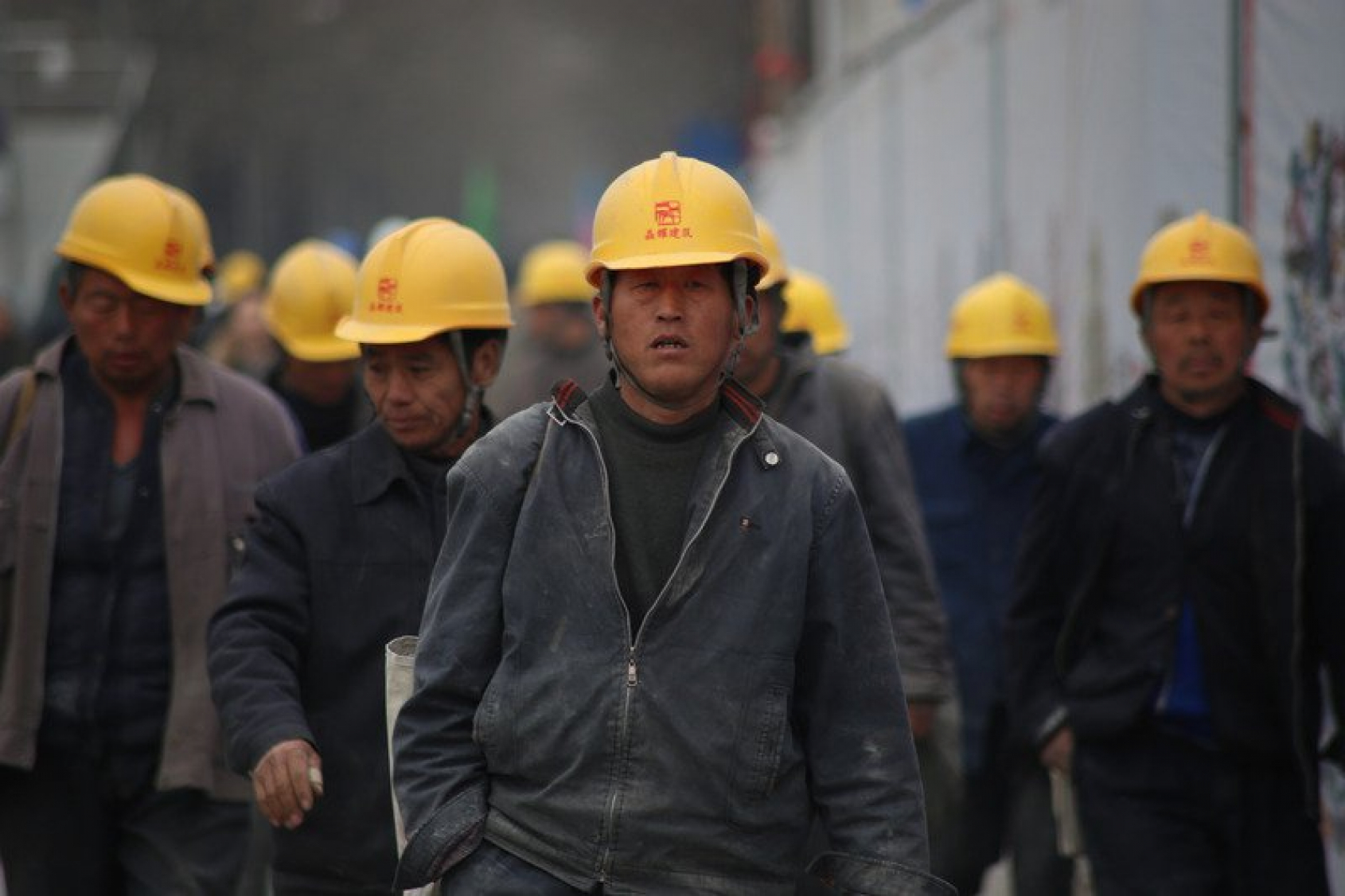
By Victor Figueroa, ITF strategic researcher
Occupational Safety and Health (OSH) are crucial issues for workers everywhere in the world. Over decades workers in different countries have won recognition for their right to work in safer environments. In some countries OSH regulations are a key tool in defending workers’ rights.
The 28 April is a day for workers everywhere to remember the struggles of the past, but also to project these struggles forward. For example, new technologies and work practices based on them are creating new challenges to worker health and safety, and new technologies also offer new opportunities to protect existing rights.
Amazon’s high-tech carrot and stick
This week I was in Spain discussing how new technology affects workers in Amazon facilities there and I was horrified at the level of control and the complete lack of consideration of worker well-being evident in the way tech is used in the warehouses. As a tech leader and a growing company, Amazon is a worrying example of the challenges that increasing numbers of workers will face in future, as monitoring and benchmarking technologies become more widespread.
Workers described to me how technology is being combined with company culture and intimidation to create a high-pressure environment rife with injuries and stress. ‘Power hours’ and ‘Ready, Steady, Go!’ systems are combined with positive exhortations (‘the kids won’t get their presents if we don’t smash this target!’) provide the carrots, while technology provides the stick to create a working environment where people are labouring at the limit of their endurance for hours and days at an end. The physical and mental toll is severe.
The Amazon workers spoke of operating under the supervision of algorithms that set the pace of work, with no-one knowing what the criteria being used were, or who had decided they were possible or reasonable. The actual work rate and the target work rate used to be displayed above some work stations, but managers found workers would slow down a bit if they were above the target rate, and so the indicator was removed. Workers work harder if they have no idea if they are meeting their targets. It helps to beat targets if managers and supervisors chivvy people along with the dreaded ‘estas flojo’ (you’re behind).
Over monitored, overworked
On top of this, chipped ID cards tell the system where workers are, and track them around the facility. Workers’ every movement is followed and team ‘leads’ or managers jump on the smallest infraction. Workers can lose two or three days’ pay for leaving a door ajar, for example. Workers also reported surveillance cameras in the changing rooms, but nobody knows who has access to the footage or what it is used for. It is another example of tech not being transparent to workers.
But technology does not just track the Amazon workers’ around the facility, it also conditions their work rate. Screens at workstations show where workers should put items, and scanners scan items as they are moved about. The algorithms decide what goes where when, and how long it should take you. The same movements are carried out again and again. One worker said, “it turns you into a robot and you are left numbed”. Workers in some workstations are literally in a cage for eight hours at a time with no social contact at all, in order to keep them away from the robots that bring them the shelves. “You could collapse in there and nobody would know” they said. One worker spent two months in the cages. “I wanted to die at the end of each shift”, they said.
The workers are carrying out hundreds, sometimes thousands of repetitions of the same movement in every shift, causing high rates of injury over time. The most common injuries are to wrists, hands and knees, although in some workstations it is back injuries. The company refuses to accept the injuries happen on the job, with managers accompanying workers reporting injuries while union reps are kept away. ‘You don’t want to work?’, some are asked by the managers. Workers say that they are utterly exhausted at the end of a shift, laughing bitterly at a question about whether they cycle to and from work: “I tell you, nobody wants to ride a bike after eight hours of that work.”
High-tech occupational health, safety and humanity
In this environment, technology is used to push people to the limits of their physical and emotional endurance. As such technology becomes more common it is vital that workers everywhere are defended by Occupational Safety and Health measures that prevent technology from applying arbitrary and inhumane work rates. Workers need to know what the rates are, and they should be able to change them. Workers need proper rest periods, particularly if they are working with screens and in isolation from others. And workers should have access to the data produced by monitoring and surveillance equipment so that they know what the tech is doing and what for.
Just as tech is used to monitor workers and force them to work harder, it could be used to monitor working conditions and protect workers from abuse. It all depends on who controls the tech and what it is used for.
Workers do not want digital overseers, we want tech that augments our capacities, that enables us to work better, not just harder. Amazon, are you listening?
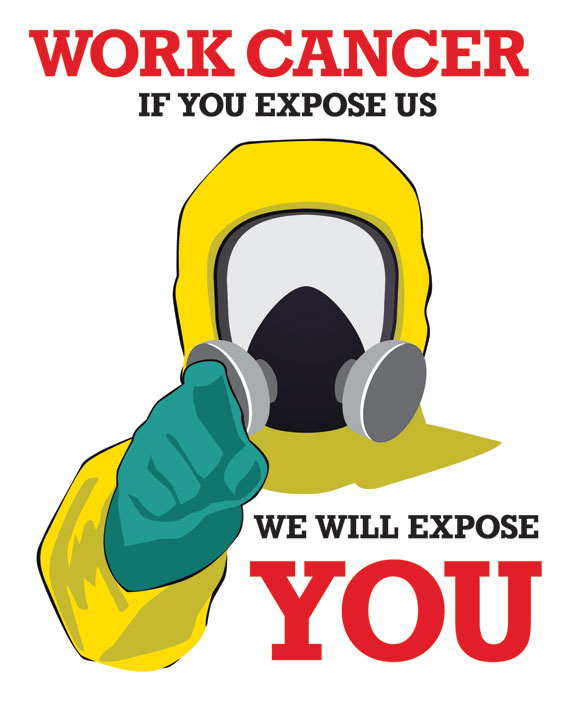
Deaths caused by hazardous substances at work are at an all-time high, linked to 1 million preventable deaths worldwide each year.
Unions are telling negligent employers, no more. If you expose us, we will expose you.
International Workers’ Memorial Day – Hazards magazine graphic 5
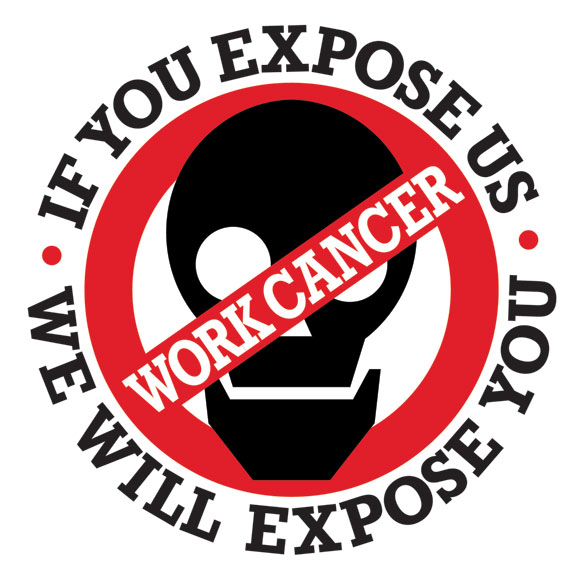
Deaths caused by hazardous substances at work are at an all-time high, linked to 1 million preventable deaths worldwide each year.
Unions are telling negligent employers, no more. If you expose us, we will expose you.
International Workers’ Memorial Day – Hazards magazine graphic 4
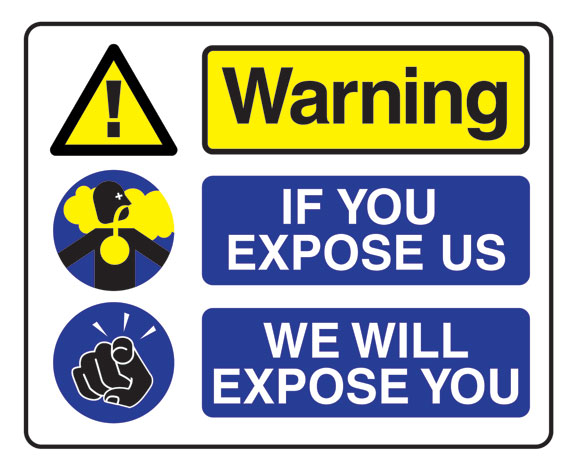
Deaths caused by hazardous substances at work are at an all-time high, linked to 1 million preventable deaths worldwide each year.
Unions are telling negligent employers, no more. If you expose us, we will expose you.
International Workers’ Memorial Day – Hazards magazine graphic 3

Deaths caused by hazardous substances at work are at an all-time high, linked to 1 million preventable deaths worldwide each year.
Unions are telling negligent employers, no more. If you expose us, we will expose you.
International Workers’ Memorial Day – Hazards magazine graphic 2

Deaths caused by hazardous substances at work are at an all-time high, linked to 1 million preventable deaths worldwide each year.
Unions are telling negligent employers, no more. If you expose us, we will expose you.
International Workers’ Memorial Day – Hazards magazine graphic 1